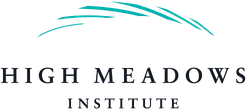High Meadows Institute (HMI) today announced the launch of the first phase of its new project, Sustainability in Capital Markets: Financing the Transition to a Sustainable Low-Carbon Economy. This initiative aims to identify the most effective opportunities for key financial market actors – including asset managers, asset owners, and intermediaries – to increase their support for the transition to a sustainable low-carbon economy (SLCE).
The first phase of the project takes a step back to assess how the financial sector as a whole currently perceives and engages with the SLCE transition. To date, most sustainable finance research has focused on public equity markets. However, a broader understanding of the role of other key financial actors—such as credit markets, sovereign wealth funds, family offices, and private equity firms—is now essential.
“The need for this research has never been more urgent,” said Chris Pinney, CEO of HMI. “The scale of climate risks and damages is becoming increasingly evident, and we must acknowledge public equity markets alone cannot be expected to provide the level of support now needed from the financial sector and fully engage the dynamic capabilities and resources of the private capital and credit markets.”
While investments in sustainability-focused companies and sectors have surged in recent years, current funding levels remain far below what is needed to meet global climate targets. Despite the adoption of sustainability standards and frameworks aimed at accelerating climate finance, challenges—including regulatory uncertainty, political pressures, market fragmentation, and conflicting incentives—continue to slow progress.
The research initiative is structured into two key phases:
Phase One: Assessing Current Levels of Engagement
HMI is evaluating how major financial market participants—including asset managers, insurance firms, pension funds, and private equity firms—are currently integrating climate-related risks and opportunities into their strategies.
The results of this analysis have been compiled into sector profiles, providing insights into the state of SLCE engagement, best practices, and tools used across different financial sectors. These comprehensive profiles, as well as in-depth case studies that identify and analyze the practices of leading firms who are pioneering the use of system-level investing to address systemic issues like climate change, will be released throughout the spring of 2025 and will be available on HMI’s website.
Phase Two: Driving Collaboration and Action
Starting in mid-2025, HMI will leverage the insights gathered to foster collaboration among investors, financial institutions, and policymakers. Through investor forums, strategic partnerships, and industry convenings, this phase will focus on identifying innovative financing mechanisms—such as blended finance and concessional finance—to significantly enhance private-sector capital flows into climate solutions.
A cornerstone of the project is the SLCE Spectrum framework, which categorizes financial market actors based on their commitment to the SLCE transition:
- SLCE 1.0: Minimal Commitment – Organizations engage with sustainability on a minimal or voluntary basis
- SLCE 2.0: Active Integration – Organizations integrate sustainability into core strategies to manage financial risks and capitalize on opportunities.
- SLCE 3.0: Systemic Leadership – Organizations manage sustainability factors at both business and systemic levels, focusing on double materiality to drive systemic change
HMI’s evaluation methodology combines desk research, expert consultations, and AI-powered analysis (including ChatGPT) to provide a comprehensive, data-driven assessment of each sector’s role in financing the SLCE transition. A combination of desk research and in-depth interviews was used to develop the case studies.
The initiative is supported by a distinguished Advisory Board, featuring leaders from academia and industry, including representatives from Columbia University, Fidelity International, The Wharton School, and Domini Impact Investments. The project was developed in collaboration with HMI’s research partners, 17 Communications and The Investment Integration Project (TIIP).
By benchmarking current financial sector engagement and providing actionable recommendations, this project underscores HMI’s commitment to fostering systemic change in capital markets and aligning financial institutions with global climate goals.
For more details, visit: https://www.highmeadowsinstitute.org/projects/sustainability-in-capital-markets-slce/
About High Meadows Institute
High Meadows Institute is dedicated to advancing research and policy solutions that drive sustainable finance and systemic change. Through initiatives like Sustainability in Capital Markets, HMI collaborates with industry leaders, investors, and policymakers to unlock the transformative potential of capital markets in addressing the climate crisis.
Media Contact
Allison Kostka
High Meadows Institute
(617) 936-8572
allison@highmeadowsinstitute.org
